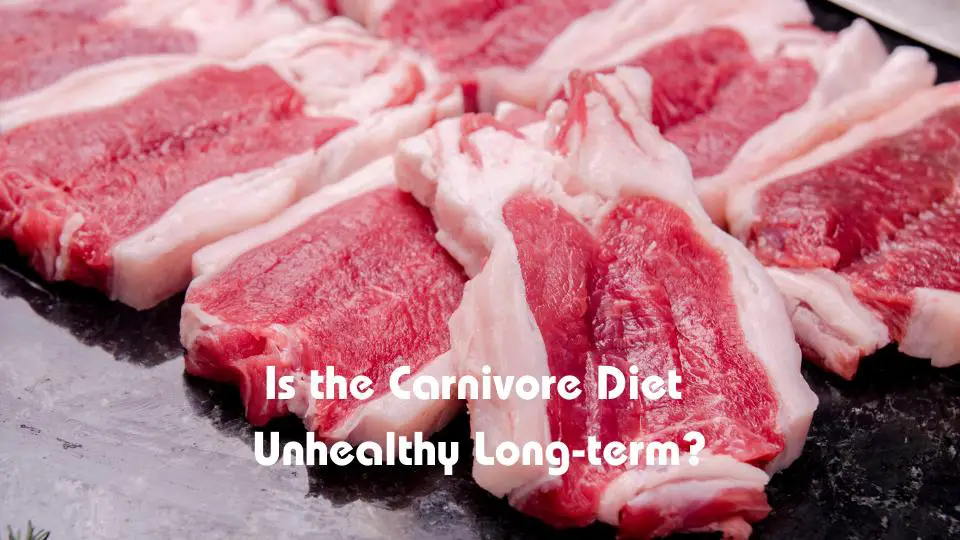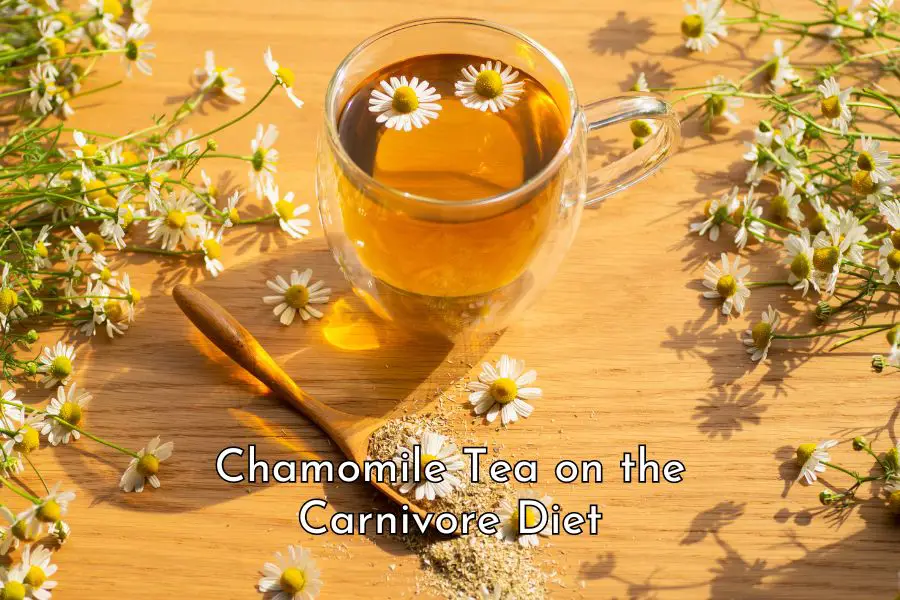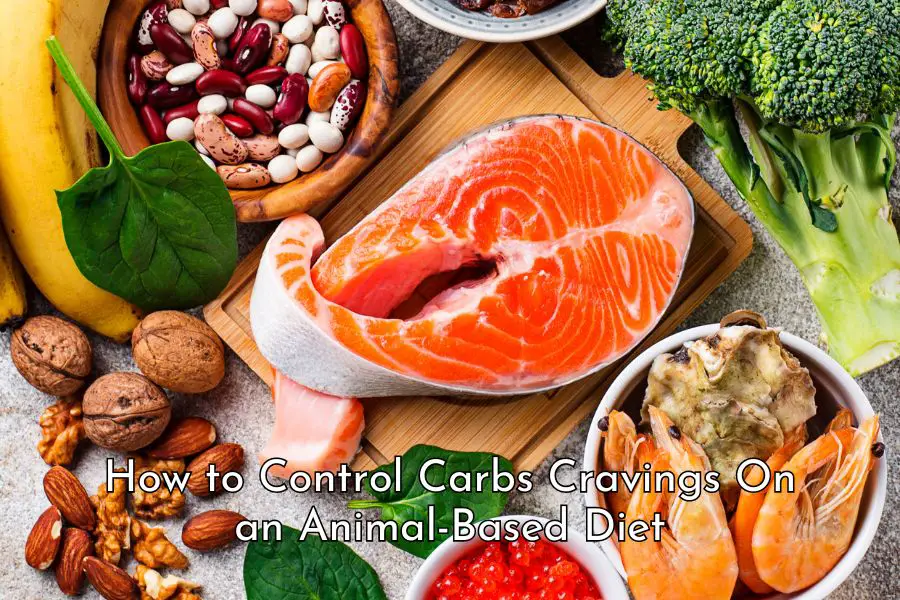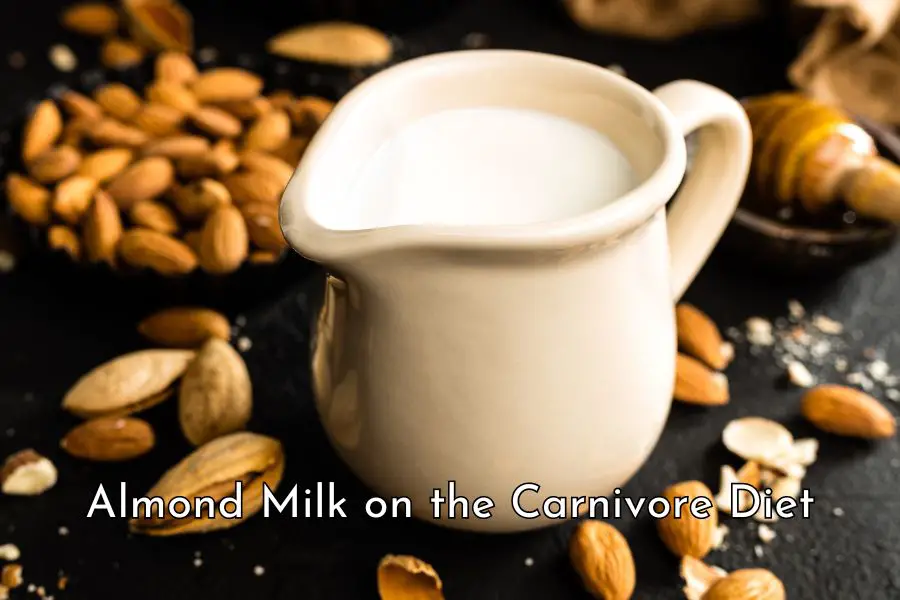The carnivore diet is a great diet for rapid weight loss and healing from chronic health conditions but is it healthy long-term?
After looking at the available evidence and giving it a lot of thought, my answer is, while I believe the carnivore diet is healthy long-term and definitely healthier than a vegan, vegetarian, or typical omnivore diet today, I am not sure if it is also the optimal diet long-term for everyone. This will probably disappoint you if you come here to look for a concrete and definite answer but please bear with me and check out my reasoning below.
First of all, the carnivore diet is healthy long-term because:
- animal-based food is the most nutrient-dense and bioavailable food that you can possibly eat
- animal-based food can provide your body with all nutrients that it needs
- animal-based food is also free from plant toxins that can be found in abundance in plant-based food.
For a more in-depth discussion on this topic, please check out this post and this post.
As to why the carnivore diet may not be the optimal diet for everyone, firstly, we do not have any solid population-level evidence that people can live on a one hundred percent meat-only diet over a few generations and remain healthy.
Our ancestors were certainly hyper-carnivorous. They lived almost exclusively on the meat of large herbivores and thrived on this diet but they also had to dabble into a bit of plant food here and there to survive.
Many societies have thrived on a primarily meat-based diet. The Inuit, the Maasai, the Mongolian nomads, and the Brazilian Gauchos have lived on an animal-based diet for many generations and are generally free of modern-day diseases like obesity, diabetes, high-blood pressure, heart disease and cancer.
However, these people are not exclusively carnivores. They eat mostly meat but they also eat some plant food. The Inuit eat walrus, seal, whale, reindeer, birds and eggs but they also eat berries, seaweed, fireweed, roots, and tubers and use plant seasonings. The Maasai live on meat, milk, and blood, but they also eat foraged plant food like tubers, tree bark and honey. The Mongolian nomads live off their cattle but also supplement with foraged foods like fruits, roots, tubers, mushrooms and wild vegetables.
Their diet and good health are a solid proof that meat and fat are incredibly nutritious and healthy and they should be the center of our diet.
However, we don’t know for certain whether these people’s health would improve or would be worse off if they eliminate the last little bit of plant food from their diets.
Sure, plant food contains plant toxins and you don’t need to eat plant food to get all nutrients that your body needs. But, what if, like exercise that brings about so many health benefits despite being a form of physical stress on our body, ingesting a bit of plant toxins now and then can make you stronger?
There is an argument that when you consume plant-based foods, anti-nutrients present in those foods cause inflammation in your body. In response, your body produces its own antioxidant called glutathione to reduce inflammation. Over time, your body will adapt to those hormesis stressors and become stronger.
Our ancestors used plant food as a survival food and that had worked out well for them. And, as a product of millions of years of evolution, our body has been built that way: an incredible machine that is best suited to a meat-based diet but is also capable of handling a bit of plant food if it needs to in order to survive.
In summary, there is no society that lives on a meat only diet. Plant food has been part of the human diet to a varying degree for survival purposes. Only today, for the first time in human history, some people have access to an abundance of food and it is possible for them to live exclusively on meat if they choose to do so.
We have seen people who have been on the carnivore diet (self reported) for 5, 10, 20, 30 and even 60 years and seem to be in great health. However, until we have credible information on the health status of generations of carnivores, we cannot say for certain that a pure carnivore diet is better than a primarily meat-based diet and whether a pure carnivore diet is the optimal diet for humans.
There is also an argument that some of our ancestors who lived in the tropics had consumed a lot more carbohydrates than those who lived elsewhere, and so, some people are genetically more suited to a diet with a much higher carbohydrate content. It is entirely possible that those people need to consume a significant amount of carbs to feel good.
Some people (e.g. Dr. Paul Saladino, Frank Tufano, the Armstrong sisters, and Carnivore Aurelius) who used to be strict carnivores have now added plant food back to their diets and say they feel much better on an animal-based diet than a strict carnivore diet.
If you are currently on the carnivore diet and feeling great (or not so great), your next question is probably whether you should stick to this diet long-term.
My answer to this question is, given the lack of evidence, you need test it out for yourself. We’d all be gone by the time quality research evidence becomes available.
Some people may find that they have no choice but to stick to a strict carnivore diet long-term. For example, some may find that, after successfully treating their chronic health problems with the carnivore diet, they would suffer from relapses if they reintroduce any quantity of plant food to their diet.
However, for some people who are generally healthy and free from chronic health issues, they have the choice of whether they want to add a bit of plant food to their diet or not.
For those who have the choice, I think the safest bet is to try to mimic the way our ancestors used to live. In particular:
- Make meat, organ meat and fat the center of your diet
- Add a small amount of plant food every now and then
- Eat with seasons
- Eat all foods in their original unprocessed forms
- Try fasting occasionally (our ancestors certainly didn’t have access to three square meals a day all year round)
- Stay physically active as much as you can
- Spend time outdoors as much as possible
- Eat during day time only
- Live in rhythm with the sun
- Keep a positive mindset and don’t sweat small stuff.
The main risk that I see with going animal-based is that it is very easy to slip off and reverting to a high carb diet which I consider unhealthy. Again, the only way to find out is to test it out for yourself. If you find that it is impossible for you to mimic our ancestor’s diet in today’s food culture and environment, you can always go back to a strict carnivore diet.
Personally for me, at this stage, I know that I feel best on a clean carnivore diet (mostly beef, lamb, eggs, organ meat, and fat). I’ve experimented a lot and I know for sure that I don’t feel very good adding plant food back. Although I can handle a bit of seasonings because the amount of plant food added is minuscule, any significant quantity is not good. A banana would result in stomach pain, a few nuts can make my eyes itchy, a slice of wholegrain sourdough bread would make me feel bloated and small cup of tea on an empty stomach would make me feel nauseous.
I would love to eat a variety of food and feel great but I know it’s not for me at the moment. One could say that my body has become weakened on the carnivore diet or one could argue that my body is now able to tell me what is and what is not good for me. Whatever it is, one thing certain is that there will be no going back to a healthy rainbow diet for me until my body tells my otherwise.
While I do believe in the “one species, one diet” principle in general, I think our health has been wrecked by confusing dietary advice to varying degrees, so we all need to do our own research and carry out our own experiments to find out what is best for each of us.
Other posts you might be interested in
Who Might Benefit from a Strict Carnivore Diet?
Raw Meat Vs Cooked Meat on the Carnivore Diet
Omega 6 to Omega-3 Ratio on the Carnivore Diet
Can You Get Fat on the Carnivore Diet
How to Lose the Last Few Pounds on the Carnivore Diet?
Do You Need Vitamin D Supplements on the Carnivore Diet?
Disclaimer: The information in this post is for reference purposes only and is not intended to constitute or replace professional medical advice. Please consult a qualified medical professional before making any changes to your diet or lifestyle. Please check out our disclaimer for more detail.





